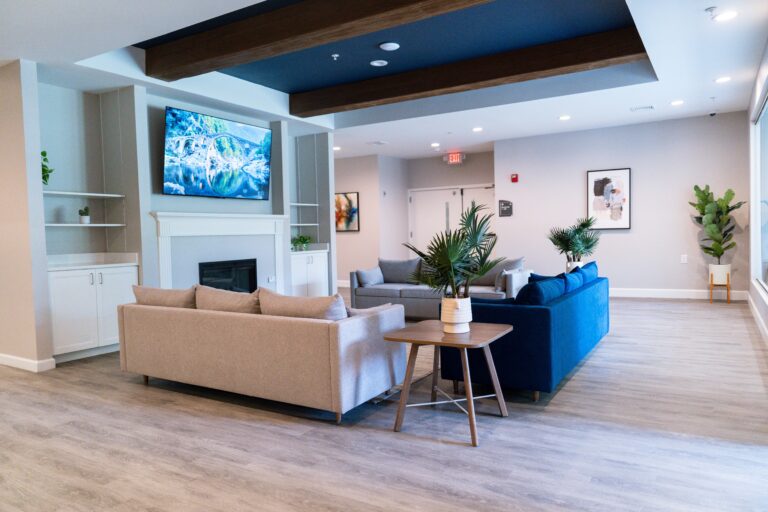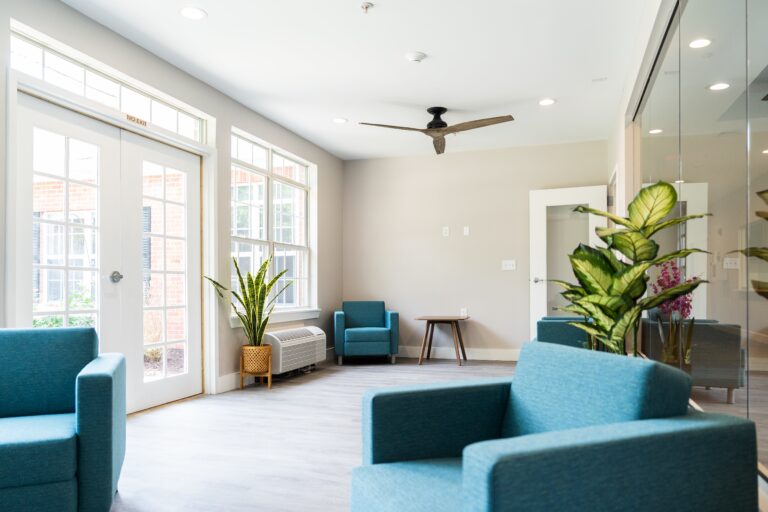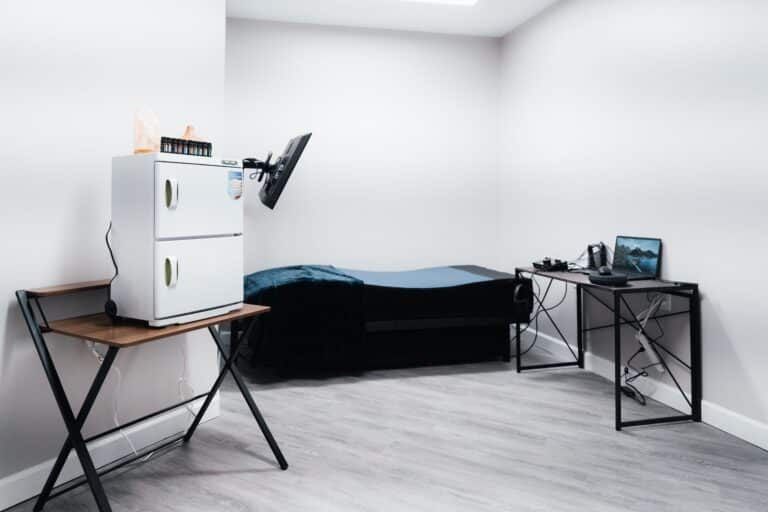
Mental hospitals and psychiatric wards have different purposes. A mental health hospital is generally used for patients who are considered to have a mental disorder. A psychiatric ward is used for patients with mental illness who have not yet recovered or stabilized to the point where they can be released back into the community.
They also differ in the level of care they provide. Mental hospitals typically offer more intensive treatment. Psychiatric wards are usually less restrictive and offer more services such as group therapy and individual therapy.
What Is A Psych Ward?
A psych ward is a shorthand term for a psychiatric ward treatment facility. Psych wards are where one is involuntarily committed when they have been deemed a danger to themselves or others. Oftentimes, this occurs during a mental health crisis or nervous breakdown.
Cases of psychiatric ward admissions could include severe bipolar schizophrenia, psychosis, drug-induced episodes, or depression leading to suicide attempts.
People land in psych wards due to friends, or family members calling the police against the individual’s will. These “wards” have around-the-clock medical and mental health doctors to closely monitor the patients well being and health.
Psych wards are often smaller and have a very sterile and barren environment. Patients may be heavily sedated upon entering the psychiatric ward. This is until they can engage in a conversation about what happened leading up to their hospitalization.
Once cognitive, the individual is assigned a treatment plan and closely monitored. This is until they can step down to a voluntary level of care, and outpatient program, often recommended by the hospital.
Individuals cannot leave the psychiatric facility without approval from their doctor. This is because they are deemed a danger to themselves and others.
What Is A Mental Hospital?
A mental hospital has both similarities and differences to a psych ward. A mental hospital is also an inpatient treatment setting with high levels of care and supervision. Psychiatric wards normally do not keep patients long-term. Mental hospitals may keep patients for a number of months in order to help them stabilize.
Some mental hospitals may also offer different levels of care including residential, partial hospitalization, and intensive outpatient. Mental health hospitals have patients who are voluntarily seeking treatment and who are willing to stay in longer programs. Patients will normally have some level of freedom and mental hospital campuses are normally larger than psychiatric wards.
What Is A Mental Health Facility?
A mental health facility is a specialized healthcare setting designed to provide assessment, treatment, and care for individuals experiencing mental health conditions. These facilities encompass a broad spectrum of care environments, each offering different levels of intervention, supervision, and therapeutic approaches tailored to patients’ specific needs.
Mental health facilities serve as crucial components in the continuum of mental healthcare, bridging the gap between outpatient services and more intensive treatment options. They provide structured environments where individuals can receive professional care, medication management, therapy, and support during periods of acute mental health crises or as part of ongoing treatment plans.
Types of Mental Health Facilities
Mental health facilities can be categorized based on several factors, including level of care:
- Inpatient facilities (including psychiatric hospitals and psychiatric units within general hospitals)
- Residential treatment centers
- Partial hospitalization programs
- Intensive outpatient programs
Psych Wards vs Mental Hospitals: Breaking The Stigma
Too often, mental health treatment is stigmatized to resemble places that are similar to a psychiatric ward vs a mental hospital. These misconceptions and judgments by society contribute to the crisis of individuals not reaching out for help when it is needed.
However, Mental health treatment does not have to look like grippy socks, sterile rooms with curtains for privacy, no tv’s or access to the “outside” world and places devoid of hope.
At Arbor Wellness, our luxury inpatient residential mental health programs are an alternative mental health treatment approach compared to a psych ward or a mental hospital. Call us now at: 1-866-771-1649, so we can help you find the best place for you or your loved one. We care.








Psych Ward VS Mental Hospital: Similarities and Differences
Treatment for mental health disorders can come in a variety of different settings. Treatments are also administered in different ways. Depending on an individual’s needs, one can seek help through medication, outpatient therapy, inpatient facilities, mental hospitals or psychiatric wards.
Psych wards vs mental hospitals have many similarities and differences. This is regarding the available treatment options, therapeutic care, length of stay, and environment. Both have key differences that set them apart.
Mental Hospital VS Psych Ward Similarities
Mental hospitals vs psychiatric wards will offer similar services. They will both have therapeutic groups, individual counseling, and psychiatric medical care. Mental hospitals and psych wards both have high levels of supervision and security. This ensures patients do not harm themselves or others.
Both types of facilities offer 24 hour supervision and care. Patients are treated safely under the supervision of professionally licensed staff.
Mental Hospital VS Psych Ward Differences
Although mental health hospitals vs psych wards have similarities, they are also very different. Mental health hospitals normally offer multiple levels of care. Psych wards normally are just inpatient treatment facilities that refer patients to other facilities for aftercare. Psych wards are for short-term stays. Mental health hospitals provide longer programs in order to help the patient achieve long-term success. These hospitals may also provide a broader range of services, such holistic therapeutic approaches.
Mental health inpatient treatment centers also provide a less sterile and bare environment for clients. Patients will enjoy more freedom, instead of being in a locked ward. Psychiatric hospitals contain patients involuntarily committed. Inpatient mental hospitals have patients seeking treatment voluntarily.

How Do I Know I Need To Go To A Psych Ward?
Recognizing when you or a loved one may need to go to a mental hospital can be challenging. It’s essential to consider the severity of the mental health symptoms and how they impact daily functioning. Some signs you may need to go to a mental hospital include the following:
-
Suicidal thoughts or actions: If you or a loved one is experiencing self-harm, suicidal thoughts, has made a suicide plan, or has attempted suicide, immediate intervention is necessary. A psych ward can provide a safe environment for assessment, stabilization, and treatment.
More: Suicide Prevention Resources
-
Homicidal thoughts or actions: If there are thoughts of harming others or a risk of violent behavior, it’s essential to seek help immediately.
-
Severe psychiatric symptoms: Symptoms such as hallucinations, delusions, mania, or severe depression that significantly disrupt daily functioning may require inpatient care.
-
Inability to care for oneself: If you or a loved one is unable to perform essential daily tasks, such as personal hygiene, eating, or managing medications, inpatient care may be necessary to provide the support needed for stabilization and recovery.
-
Rapid deterioration or crisis: A sudden decline in mental health or an acute crisis, such as a psychotic break or severe anxiety attack, may warrant inpatient psychiatric care to ensure safety and provide appropriate treatment.
How to Find the Right Inpatient Mental Health Treatment
Finding the right mental health treatment can be crucial to your recovery. The process of finding the right treatment program can be difficult, but in general, we’ve laid out the following guidelines:
- Inpatient vs Outpatient: When outpatient treatment isn’t enough, residential mental health treatment can provide the intensive support and care needed to promote healing and recovery. At Arbor Wellness, our Nashville mental health treatment offers multiple levels of care that include the following so that you can get the proper care you need:
- Residential Treatment
- Partial Hospitalization Program
- Intensive Outpatient Program
- Veterans Program
- Alumni Program
2. Verify Accreditations and Credentials: Accreditation ensures that a facility meets specific quality standards for care and treatment. Look for facilities accredited by reputable organizations, such as The Joint Commission or the Commission on Accreditation of Rehabilitation Facilities (CARF). Additionally, verify that the treatment team consists of licensed and experienced mental health professionals.
3. Inquire About Aftercare Support: Recovery is an ongoing process, and the transition from inpatient care back to daily life can be challenging. Ensure the facility you choose offers aftercare support, such as outpatient therapy, support groups, or case management services, to help maintain progress made during inpatient treatment.
4. Review Costs and Insurance Coverage: Inpatient mental health treatment can be costly. Review the costs associated with each facility and determine if your insurance covers all or a portion of the expenses. Learn more about mental health insurance coverage options and verify your insurance now!
Inpatient Mental Health Treatment In Tennessee
Here at Arbor Wellness, we offer a residential mental health treatment program.
This is to help you or your loved one learn to cope with mental illness. Our partial hospitalization program, located in Tennessee, offers unique and tailored treatment services.
This is in order to maximize the benefits of our treatment programs. We offer a wide range of services in a safe and welcoming environment.
These include psychiatric medications, individual therapy, and group therapy. We work hand and hand with our clients with the goal of providing them with long-term stabilization and coping skills. Upon completion of our program, we make sure to create an individualized aftercare plan for you. This will help you achieve long-term success. Get started on the path of healing, call our admissions team today.
People who Trust Arbor Wellness
Don’t trust our word, let others share their experience, strength, and hope.
























Pingback: Mental Hospitals In Canada – Caepv
Pingback: Psych Ward vs Mental Hospital: Navigating the Difference